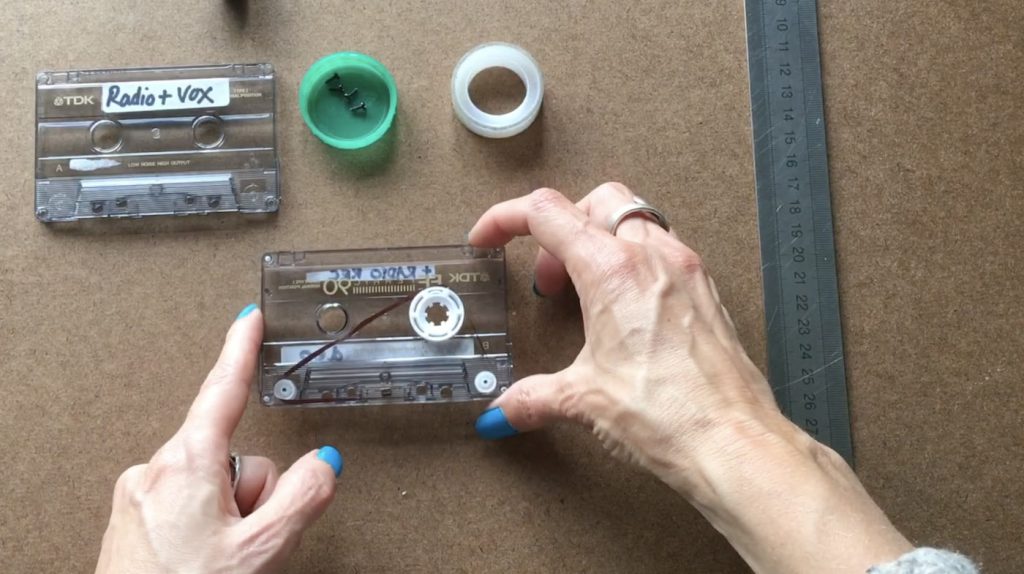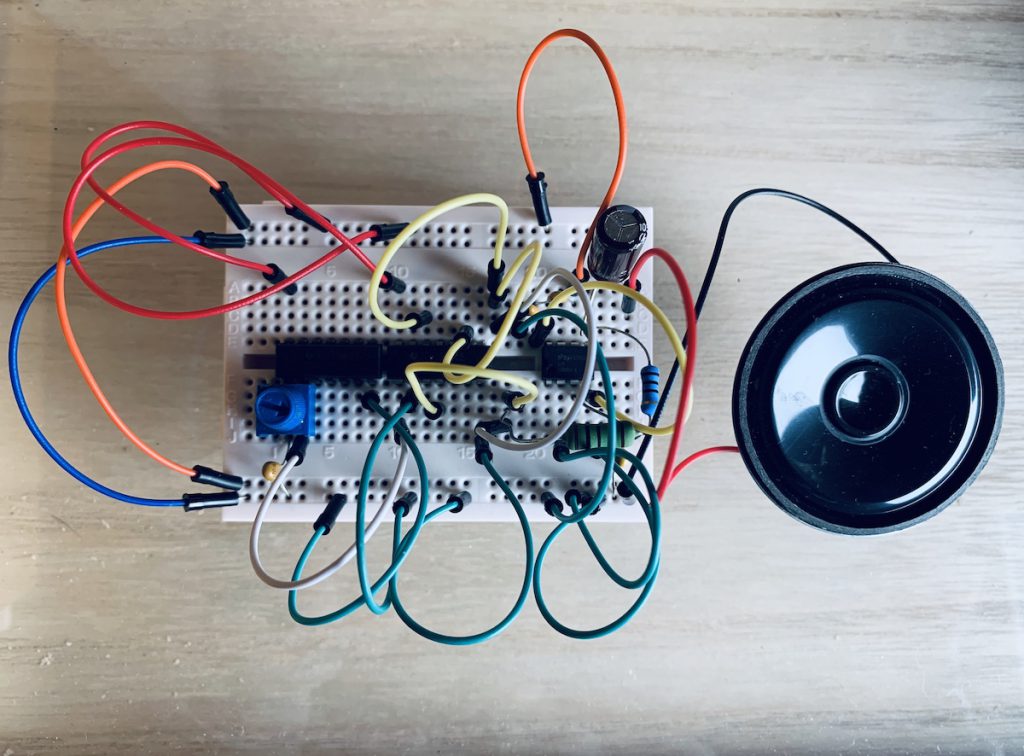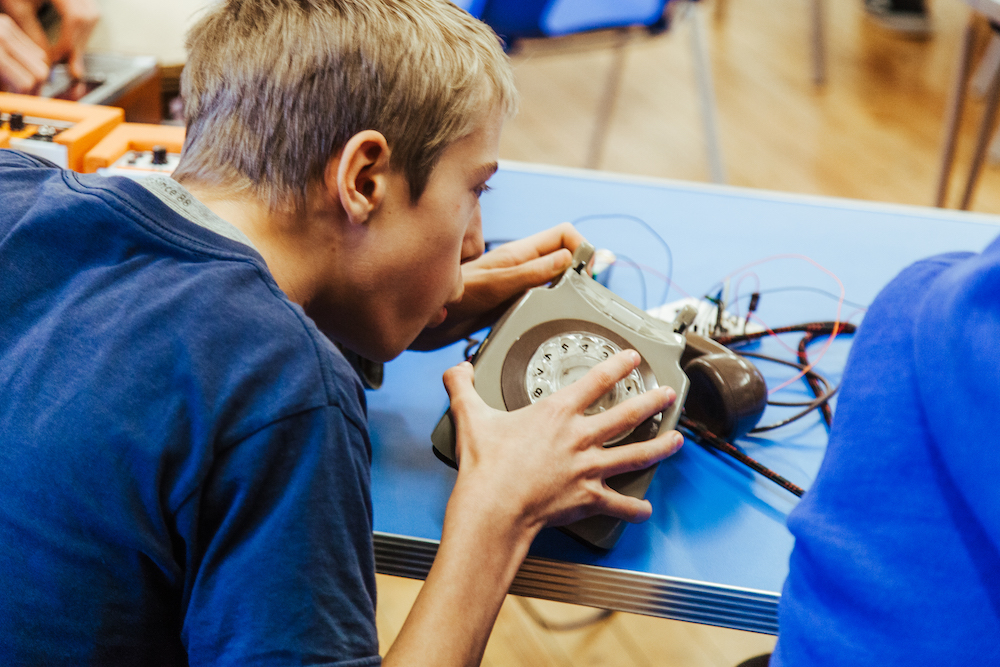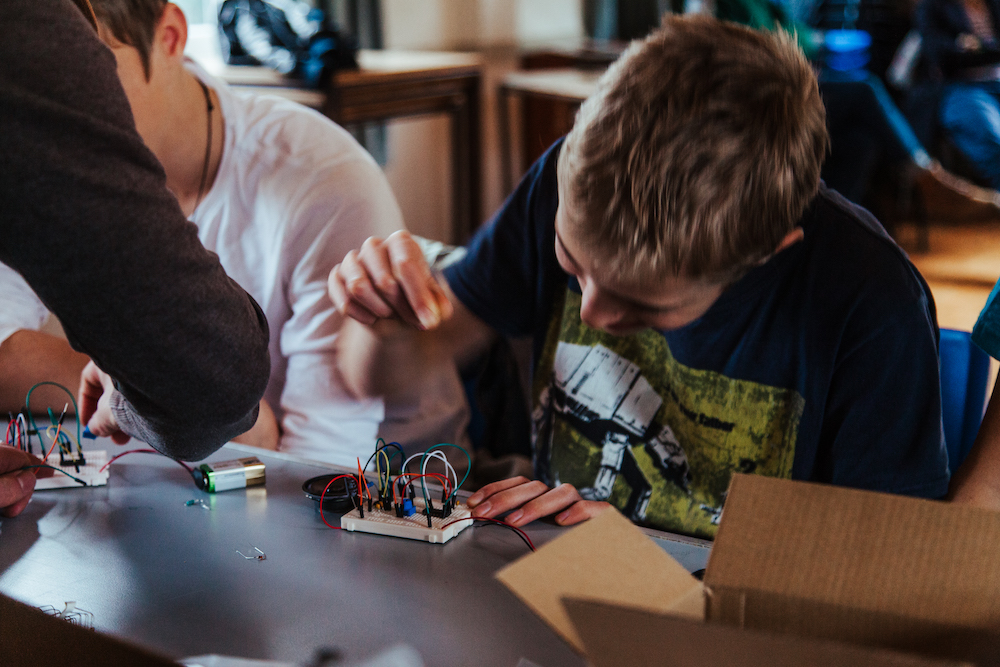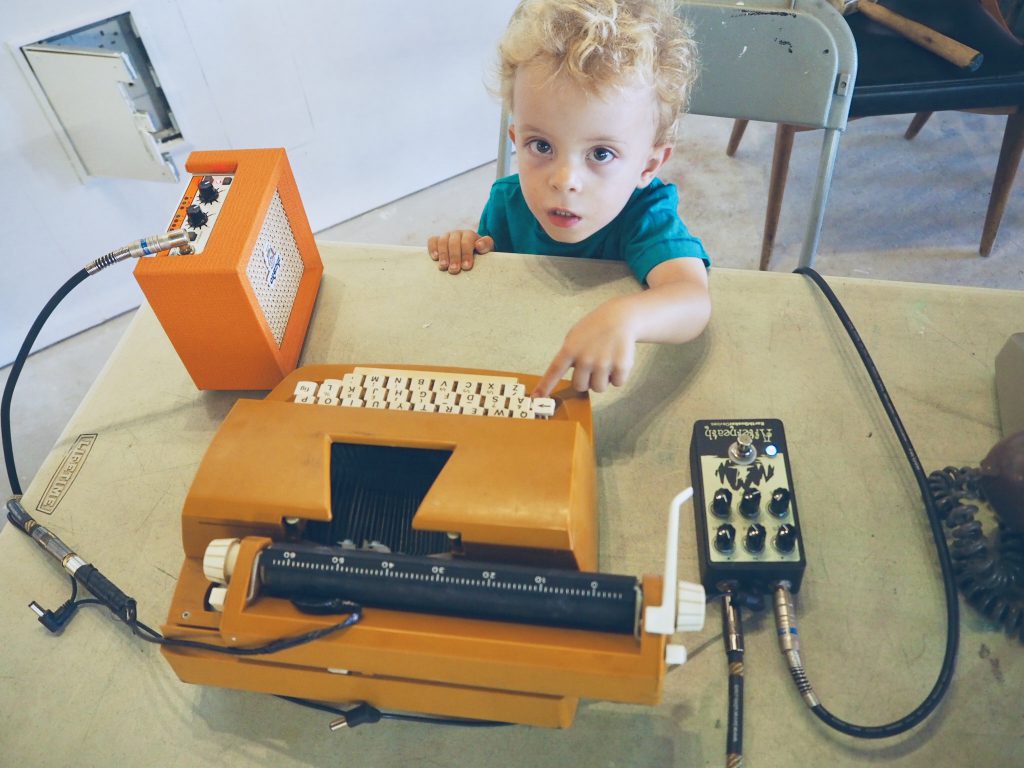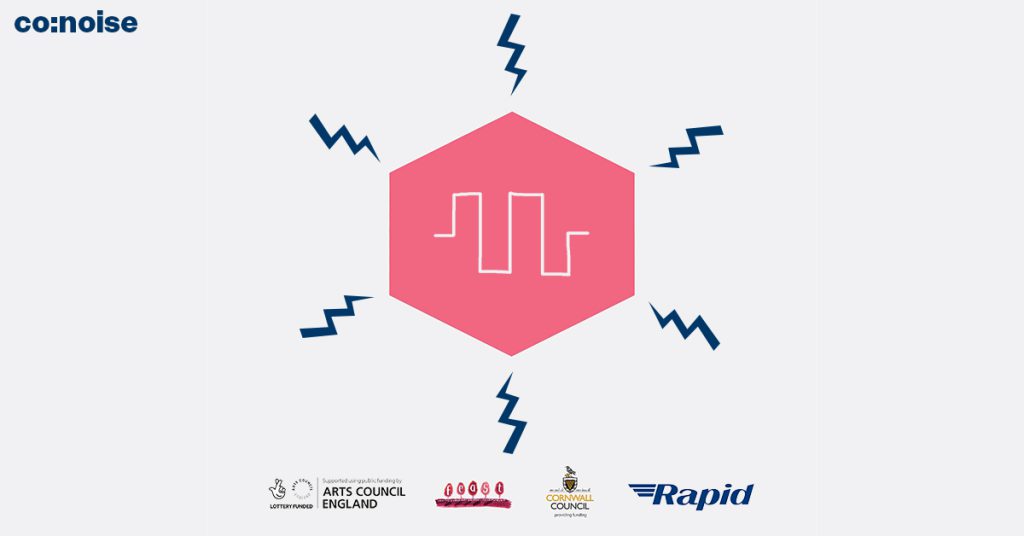
Event / project
Electronic Music Tutorials (ages 13-16)
What
Free tutorials on 'Modular Synths' or 'Sound Experiments' for ages 13-16. No musical experience needed, and instruments will be supplied. These sessions are held in groups of four at AMATA, Falmouth University.
When
This project is currently paused while we look for funding to continue it. Wednesdays 5:15 - 6:15pm (term time)
Note: This project is currently paused while we look for funding to continue it. If you are interested in joining in the future, please email matt@moogiewonderland.co.uk
Sign up to our exciting new programme of free electronic music tutorials for young people aged 13-16! No experience or instruments are needed and there are two areas of interest to choose from: Modular Synths or Sound Experiments. Both tutorial strands will involve learning about various techniques, performing at a concert as part of a small ensemble in November and, with support from Falmouth University students and staff, release a vinyl record of the music you make!
Our tutors are experienced musicians and music leaders, who have toured the UK and been played on national radio such as BBC 6 Music. Occasionally a guest tutor may run a session to show you specific techniques. All tutors are experienced in working with young people and have the appropriate DBS checks in place.
HOW TO APPLY
You’ll need to read the below information and choose the tutorial option your child (aged 13-16) would like to attend (Modular Synths or Sound Experiments). Once you have chosen one, please email matt@moogiewonderland.co.uk and we’ll send you a form and provide more information.
Please let us know if your child has any access needs (note that sessions may not be suitable for people with sound-based sensory issues).
All sessions will take place on Wednesdays (term time) at AMATA (Studio L), Tremough Campus, Falmouth University. They will run from 24th May to the end of November – if there are spaces, you can sign up at anytime.
Below are the two options to choose from:
1. MODULAR SYNTHS
In these tutorials, you will learn how to make music on modular synths by generating, shaping, and moving sound on fun electronic instruments.
What is a modular synth?
A modular synth is an electronic musical instrument composed of several individual blocks that have a specific function called ‘modules’. Playing them involves connecting ‘patch’ cables between various the outputs and inputs from these modules, creating a signal path that allows the instrument to make sound. In other words, you design how the instrument works by connecting the modules together. As a result, there are lots of possibilities, meaning that a modular synth can produce a huge range of sounds — patching modular synth one way can turn it into a drum machine, and patching it another way can turn it into a cloud of dreamy chords. You can control them in several ways without needing a keyboard (although many musicians do use keyboards to control them). This means that you do not need to be able to read music to play them.
Modular synths are used in lots of modern dance, pop, and experimental music, but they have a huge history and have been used in most genres. Famous modular synth users include Daft Punk, Aphex Twin, Suzanne Ciani, BBC Radiophonic Workshop, Deadmau5, Nine Inch Nails, and Herbie Hancock.

What will I learn?
If you choose the ‘modular synths’ tutorials, you will learn what a modular synth is, how to patch them, and how to perform music with them them. You’ll understand how to use them to generate sound, shape sound, and move sound to make music or effects. You will get to use state-of-the art equipment from the likes of Moog, Make Noise, and Verbos Electronics; you’ll be introduced to DIY electronic synth modules you can build yourself; and we’ll also show you VCV Rack which is a virtual modular synth that you can use on computers.
Do I need to own a modular synth or any other equipment?
No. We will provide instruments to use in the sessions. If you have a computer, we recommend you install VCV Rack so that you can practise at home, but this is not essential. When you sign up, we’ll ask you whether you have access to a computer, tablet or smartphone and use that information to make recommendations of what you could use to practise. If you have none of those, that’s fine too.
Should I practise on headphones?
We recommend that you don’t use headphones because modular synth patching can be unpredictable. We recommend reasonable and safe volumes from speakers. If you do use headphones, you should use volume limiting controls in the settings of your device.
2. SOUND EXPERIMENTS
In these tutorials, you will learn how to make music and effects using a variety of fun exploratory techniques – it will be like a laboratory of sound with speakers, sensors, tape loops, modular synths and more! The focus will be on electroacoustic music and immersive audio.
What is electroacoustic music/immersive audio?
In electroacoustic music, composers use technology to manipulate acoustic sounds to make music, effects, or sound art. It can be a mixture of using electronic processing and acoustic instruments or any object that makes a sound. Often, an acoustic instrument is sent to a processing tool to change the sound, or it is recorded and manipulated or cut up (e.g. on computer software or by using cassette tape). Its history is in ‘musique concrete’, in which tape loops were created and manipulated through editing the loops or changing playback speeds. Modular synths can also be used to do manipulate recorded or ‘live’ sounds.
Immersive audio is a way to perform music with sensors and/or to mix and send music to speakers in a surround sound format. We are fans of quadraphonic audio, which uses four speakers and is great for use with modular synths.
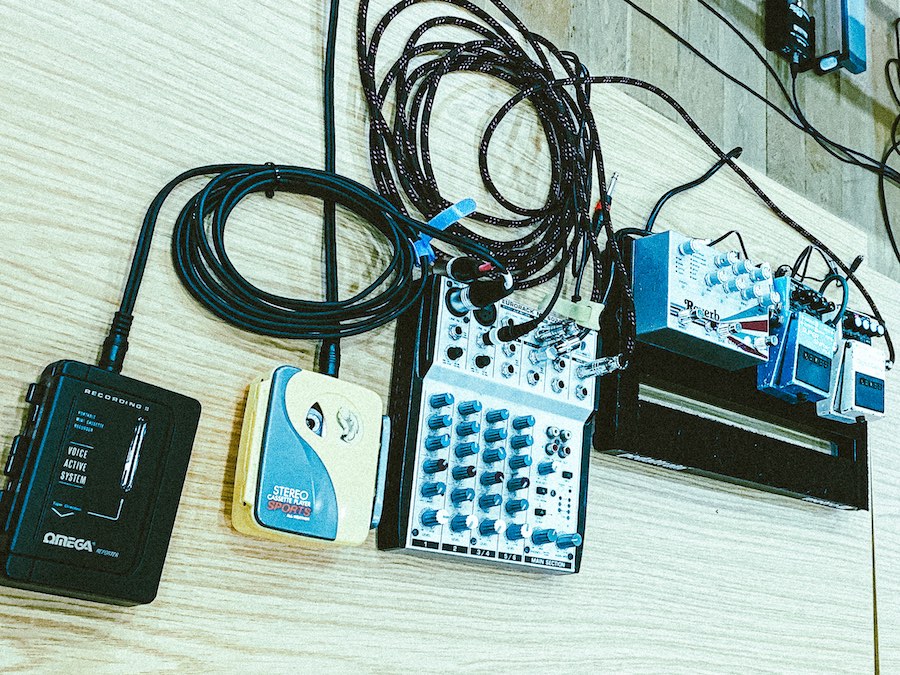
What will I learn?
If you choose the ‘sound experiments’ tutorials, you will explore a number of playful and creative ways to make music, such as:
- Using contact mics to get sound from objects
- Making tape loops
- Swinging microphones over speakers to make odd sounds and rhythms
- Using Arduino or Raspberry Pi with sensors to ‘trigger’ and manipulate sounds
- Using modular synths to manipulate sounds
- Mixing music to send and move sound around several speakers
Do I need to own any instruments or equipment?
No. We will provide all equipment to use in the sessions. If you have a computer, we recommend you install VCV Rack so that you can practise the modular synth elements at, but this is not essential. When you sign up, we’ll ask you whether you have access to a computer, tablet or smartphone and use that information to make recommendations of what you could use to practise. If you have none of those, that’s fine too.
It seems quite experimental – what kind of sounds can I expect?
It will be a diverse range of sounds but most of the focus will be on gentler sounds. Occasionally we’ll have fun with mildly chaotic sounds (e.g. the sound of birds tweeting or of recordings disintegrating) so that we can show you some playful techniques from pioneers of experimental music but everything will be at a comfortable and safe volume so that you can focus on having fun.
